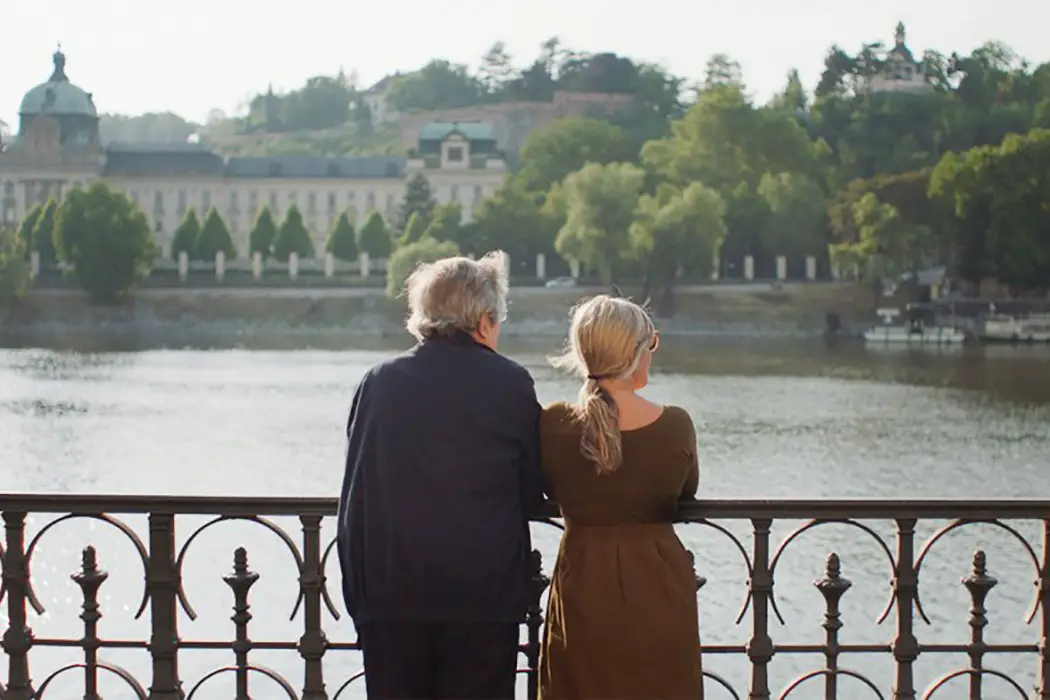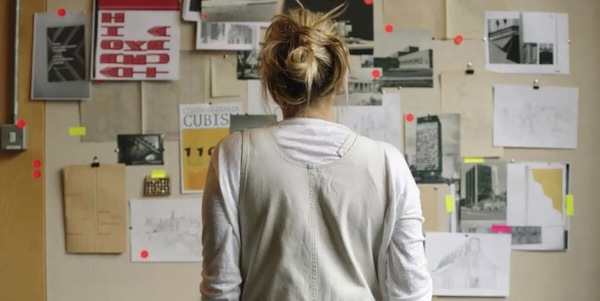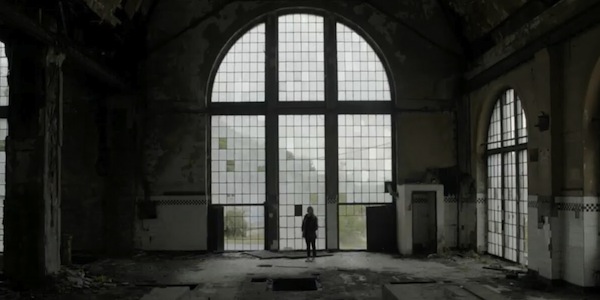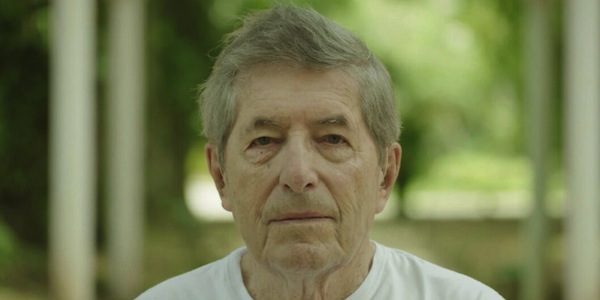RED TREES: A Colorful Display Of Tragedy & Will (Interview With Director Marina Willer)

Sophia Cowley is a young writer, yogi, feminist and film…
In Red Trees, Marina Willer does something both intimate and daring. The award-winning director points a camera at her own father, whose family was one of only twelve Jewish families to survive the Nazi invasion of Prague during WWII. The film captures his story, as it begins in war-stricken Eastern Europe and ends in the sanctuary of South America.
The film opens with a beautiful shot of Willer’s father, Alfred, whose wrinkled face alone speaks of many stories to be told. Willer brought on César Charlone, cinematographer of City of God, to photograph Red Trees. His expertise, along with that of DP Jonathan Clabburn, shines through in the form of gloriously vivid shots. In fact, the entire film plays out like a series of moving paintings.
Red Trees does not feature much face-time with Alfred himself, but instead, the film blends architecture, colors and textures, and is accompanied by the hearty narration of the late Tim Piggot-Smith.

“I have never understood an attachment to one nation, one culture, one origin.”
Toward the end of the film, Alfred says, “I have never understood an attachment to one nation, one culture, one origin.” Along with the splashes of color comes a tale of diversity; by the end of Red Trees we learn that Alfred has been—and still is—a German, a Czech, a Brazilian, and a Brit. He also confides that he is a Jew, a Catholic and a Protestant. “What a salad,” he jokes.
As an American with a fuzzy cultural background, I felt enlightened, if not a little perplexed, watching someone who was both sure of his roots and confident in floating between the lines. In the midst of the tragedy of the Holocaust, Alfred never lost his identity. That said, it would take decades and several generations to process the trauma and loss that defined that hideous era in history.
Perhaps we need Alfred’s wisdom now more than ever, while a certain American leader/demagogue decrees patriotism in dangerous ways. Immigrants face deportations and many minorities are under threat as soon as they leave their homes. We must learn from the horrors of the past and create a new, safe environment, one where we can acknowledge with certainty that we all come from one big, messy salad. But, of course, that is much easier said than done.
In the meantime, we reached out to Willer in hopes of gaining some insight into her inspiring and poetic film.

Sophia Cowley for Film Inquiry: The cinematography in Red Trees is absolutely stunning. How did you wind up connecting with César Charlone?
Marina Willer: We are friends and have previously worked together on commercial work in Brazil. César has always been fond of my short films and wanted to do a bigger project together. He is amazingly talented and very resourceful, creating beauty with very little. I also had Jonathan Clabburn, a fantastic cinematographer, working on the project. Both contributed equally. I shot bits and pieces too.
What camera(s) did you use to shoot Red Trees? Tell us a little bit about the tech.
Marina Willer: Taking the advice of some dear friends we filmed using an Arri Amira – a beautiful piece of equipment that offers fantastic texture and depth. There is also footage throughout the film that I shot opportunistically using my mobile phone.
Why did you opt out of filming traditional interviews and choose voice-over instead?
Marina Willer: I am a designer by trade and I love creating images. I spent a year storyboarding, using a still camera and my phone, hoping to design a contemplative film using evocative visuals. With Red Trees, it was my intention to create a space for the audience to listen to the narrative; not to illustrate but to instigate imagination, like when you listen to the radio and imagine the story.
How did you decide which “archival” footage to include? Did you consider including other home videos in the film, or was that not in your vision?
Marina Willer: I decided to limit the use of archival footage to moments that are poignant and central to the story. Genuine feeling or expression from my father, or to convey the look and feel of certain locations without art direction. It was my hope that using this footage would give the film a degree of realism.

Your father is quite candid about his upbringing and his experience during WWII. How did he react when you first discussed the project with him?
Marina Willer: I don’t think that he really figured that he would have to open up when I first told him about the film! He was just so proud that I was making a film about the family and our history. It really was an endeavor of patience, collecting the fragments as the opportunities presented themselves – my father doesn’t tend to open up all that much.
With the current refugee crisis affecting people on a global scale, what lessons do you hope audiences will take away from the film, and where can we draw parallels between then and now?
Marina Willer: Making Red Trees was my attempt at understand the shifting world we live in; looking to the past for lessons on how to deal with the ever-worsening refugee crisis. The film tells the story of my family’s survival and journey to a new life in Brazil, how they went on to become a real mixture, or ‘fruit salad’ as my father would say. Brazil is the most racially mixed nation on earth – and it has been a real gift for my family. Hopefully it’s a film about acceptance, hope and diversity – and finding a gift in those around you.
Red Trees opened in the U.S. on September 15th. For showtimes and more information, visit: http://cohenmedia.net/films/red-trees.
Is Red Trees on your list of movies to see this fall? Let us know in the comments below!
Does content like this matter to you?
Become a Member and support film journalism. Unlock access to all of Film Inquiry`s great articles. Join a community of like-minded readers who are passionate about cinema - get access to our private members Network, give back to independent filmmakers, and more.
Sophia Cowley is a young writer, yogi, feminist and film enthusiast from NY. Her idols include Miranda July, David Lynch and Abraham Lincoln. She runs the blog www. isthisthereellife.wordpress.com.













